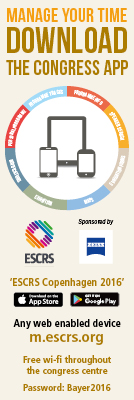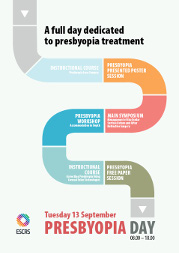Assessment of the psychometric properties of the Catquest 9-item short-form questionnaire using Rasch analysis
Session Details
Session Title: Cataract Surgery Outcomes/Practice Styles/Biometry
Session Date/Time: Monday 12/09/2016 | 14:00-16:00
Paper Time: 14:06
Venue: Auditorium C6
First Author: : J.Huang CHINA
Co Author(s): : J. Khadka K. Pesudovs Q. Wang
Abstract Details
Purpose:
To adapt, assess and optimize psychometric properties of the Chinese translated version of the Catquest 9-item short-form (Catquest-9SF) using Rasch analysis in a Chinese cataract population.
Setting:
Eye Hospital of Wenzhou Medical University, Wenzhou, Zhejiang, China.
Methods:
A total of 247 patients waiting for the cataract surgery participated in the study. The Chinese translated version of the Catquest-9SF was interviewer-administered. Rasch analysis was used to asses psychometric properties of the instrument that included assessment of response category function, measurement precision, unidimensionality (using item fit statistics and principle component of analysis of the residuals), targeting and differential item functioning (DIF).
Results:
The original Catquest-9SF scale possessed adequate measurement precision of 2.15. No disordering of response categories were observed, signifying that the response categories were evenly used by the respondents. All the items perfectly fit to the Rasch model except item 7 (outfit >1.5). A slight reduction in precision (2.09) was observed after removing misfitting item 7 (Catquest-8SF), however the precision value was well above the acceptable value of 2.00. Notably, the instrument was well targeted (mean person location 0.5), demonstrated no evidence of multidimensionality and DIF. The correlation between the Catquest-8SF scores and visual acuity was moderate.
Conclusions:
The current Catquest-8SF questionnaire demonstrated promising Rasch based psychometric properties and could be used as outcomes of cataract patients in China.
Financial Disclosure:
NONE





